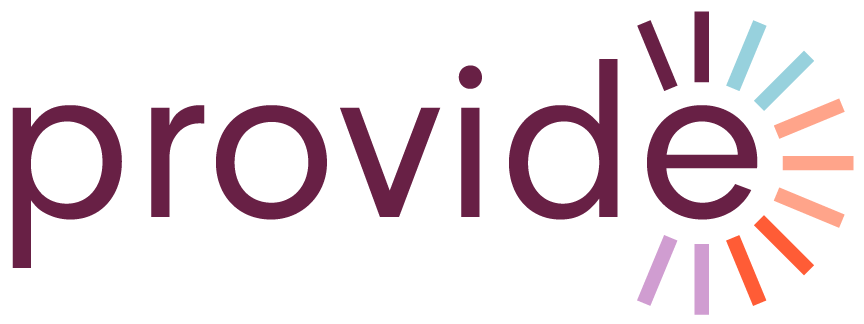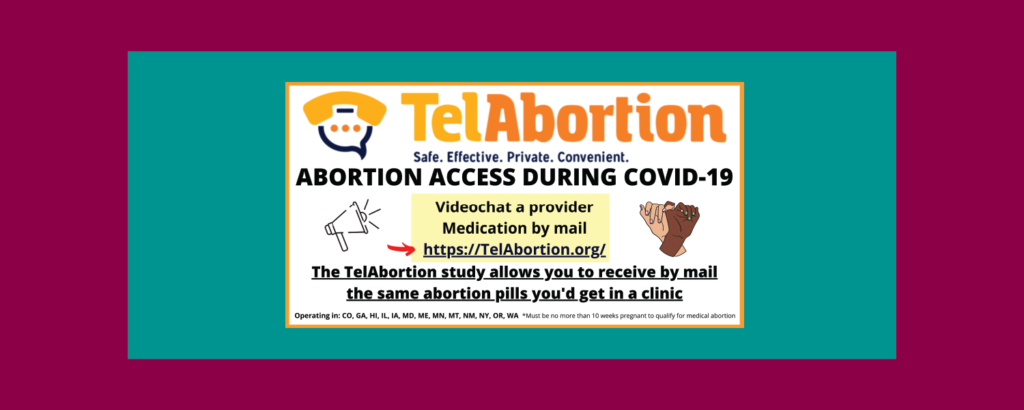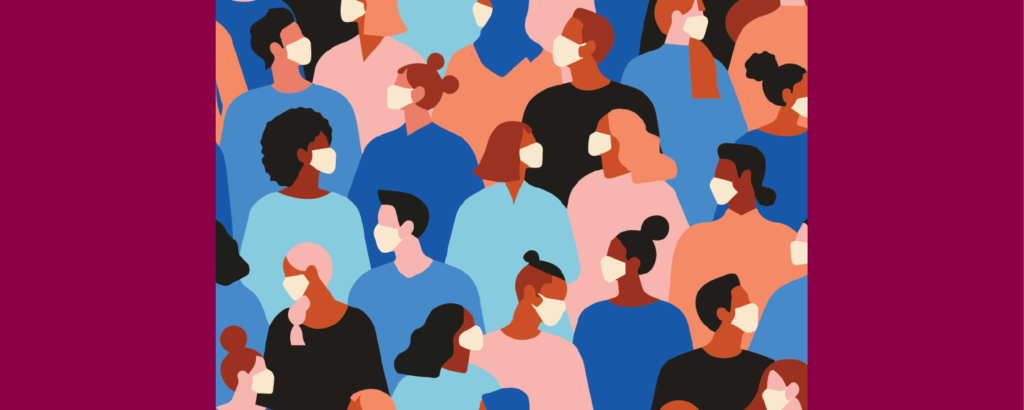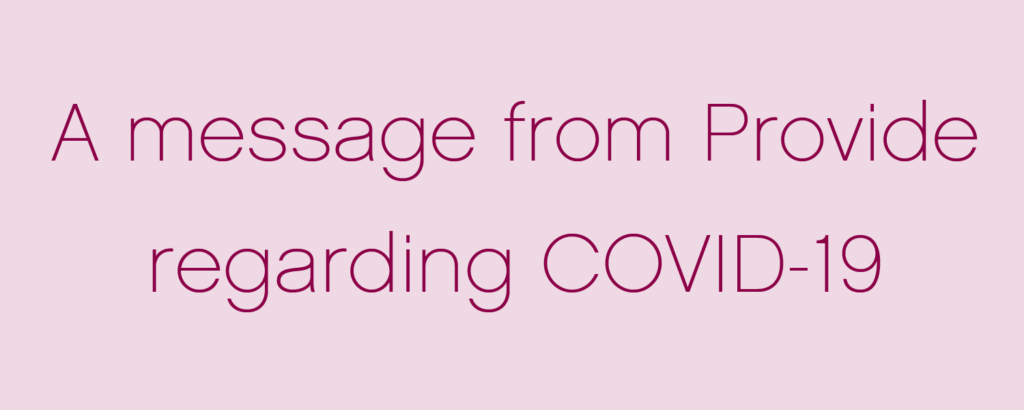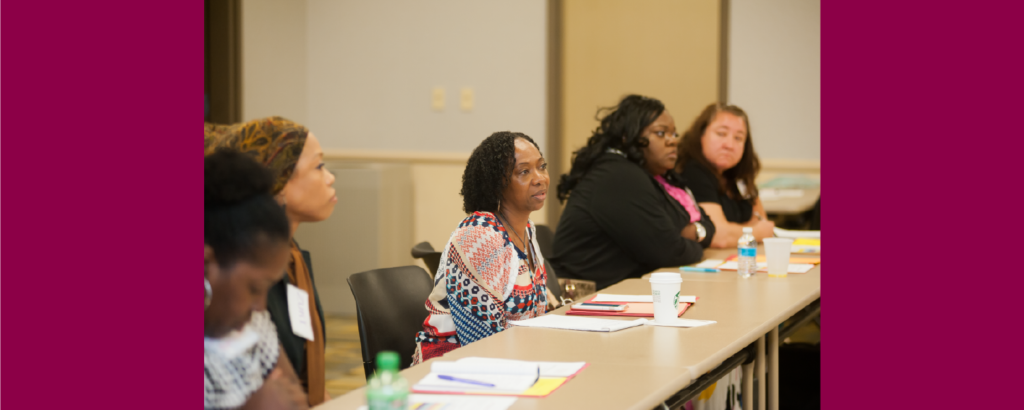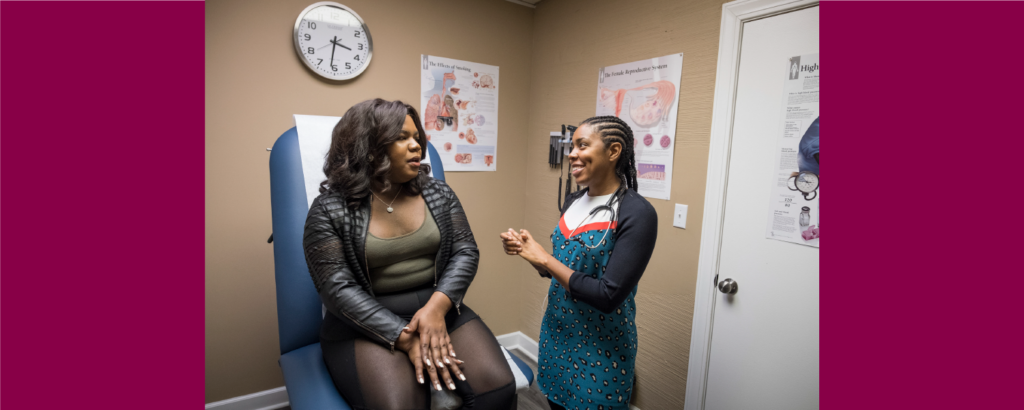- All
- Abortion
- Abortion
- Abortion Bans
- Blog
- COVID-19
- Domestic Violence/Sexual Assault
- Family Planning
- HIV
- LGBTQ+
- Primary Care
- Provide GEMs
- Provider Voices
- Racial Justice
- Social Work
- Stigma
- Substance Use
- Support Provide
- Technical Assistance
- Title X
- Top Posts
Lois A. Wessel talks about the importance of health equity in access to reproductive and sexual healthcare, and why she gathered a group of friends to support Provide’s important work.
Tamika (she/her) received a Master’s in Social Work in 2022 and has been working in the social work field for the past four years. We had the opportunity to talk with Tamika about her work and passion for connecting patients to resources.
Talking about abortion can be tough. Our popular Q&A can help.
By recognizing and combatting anti-fat bias and creating supportive environments, you can ensure that everyone receives the care and respect they deserve, regardless of their size.
March is Social Work Month and a great opportunity to emphasize our role in removing barriers to reproductive and sexual healthcare for all.
Abortion bans place significant burdens on providers, necessitating a proactive and multifaceted response from leadership within critical care systems.
Supporting someone who is self-managing their abortion requires empathy, understanding, and a profound recognition of everyone’s right to bodily autonomy.
Abortion doulas contribute significantly to the overall wellbeing and autonomy of people seeking abortion care.
People living in rural areas face numerous and daunting barriers that impede their ability to obtain essential care.
In celebration of Black Maternal Health Week, Black mamas on staff at Provide share their stories to shine a light on systemic issues.
In celebration of Black Maternal Health Week, Black mamas on staff at Provide share their stories to shine a light on systemic issues.
In celebration of Black Maternal Health Week, Black mamas on staff at Provide share their stories to shine a light on systemic issues.
In celebration of Black Maternal Health Week, Black mamas on staff at Provide share their stories to shine a light on systemic issues.
Self managed abortion (SMA) broadly refers to abortion that happens outside of the formal healthcare system.
It’s important for providers to know about teen dating violence and how to support young people in developing healthy relationships and autonomy.
Christy Fujio served on the Provide Board of Directors from 2013-2020 and is a member of our GEM (Giving Every Month) circle.
A successful status-neutral approach goes beyond HIV prevention and treatment to meet holistic health and social service needs.
Suzanne Ehlers is a non-profit executive working in the international humanitarian and development sector. She is a member of our GEM (Giving Every Month) circle.
Andie S. Kramer is an attorney and founder of ASKramer Law, and is a member of our GEM (Giving Every Month) circle.
Including your financial commitment to abortion access in your monthly budget is a convenient way to make an impact without a lot of maintenance.
Traci Baird is a longtime Provide supporter, former board president, and champion for global reproductive health.
Tracey Crook is a former postpartum nurse living and working in Delaware who attended Provide’s Abortion Referrals Training earlier this year.
Looking for your next great read? Check out Provide’s curated summer reading list!
Affirming abortion care is crucial for the well-being and autonomy of LGBTQ+ people.
Reducing stigma and provider bias through a harm reduction lens calls for a client-centered approach rooted in autonomy, dignity, and medically accurate information.
Julie Jenkins is a sexual and reproductive health nurse practitioner who contributed to Provide’s Practice Guide on Pregnancy Options Counseling.
Medication abortion remains accessible in the places where it is currently legal and available.
Mugdha Mokashi is an OB/GYN Resident and Provide board member.
Pregnant people navigating the post-Roe abortion access landscape need unconditional love and support from their families, providers, and communities.
Abortion funds play a critical role in abortion justice by providing financial and logistical support to those seeking abortion services.
Provide’s Client Experience Study found substantive racial disparities in pregnancy options counseling and referrals. Here’s what you can do about it.
We are still here to train, organize, and support providers in responding to their community’s needs around abortion care.
Health care and social service providers play an essential role in ending HIV stigma and helping youth stay healthy.
An estimated 57 million people live in rural and frontier communities throughout the US.
Clients are significantly more satisfied with their care when providers can discuss abortion as a pregnancy option.
People experiencing both IPV and reproductive coercion are less likely to have autonomy to make decisions about contraception and family planning.
Self-managed abortion is an alternative pathway for people who face barriers to the formal healthcare system.
Provide stands in solidarity with Texans as they continue to navigate cruel and unnecessary restrictions on abortion.
Validating feelings and seeking understanding are key ingredients to creating a space where clients can discuss their pregnancy options.
“Provide’s training made it more clear than ever that LGBTQ+ people can be anybody and they really need every resource we can offer.”
New programming from Provide can help you support LGBTQ+ clients experiencing unintended pregnancies.
Telehealth services, including abortion pills by mail, can help people access essential care.
What we’ve learned from piloting Abortion Referrals Training online during COVID-19.
The role of pharmacists in family planning services is exploding with more states allowing pharmacists to prescribe hormonal contraception and emergency contraception.
Racism, not race, is killing Black, Brown, and Indigenous people in our maternity care system.
The threat of two viruses are in full effect right now: COVID-19 and racism.
The TelAbortion project is a way for people to access medical abortion without going to an abortion clinic.
Provide continues to be a resource for organizations making real-time referrals for abortion care. Learn more about our team’s recent work in Oklahoma.
Provide will be cancelling all in-person trainings and technical assistance meetings between now and May 4th, 2020.
Learn more about Provide’s partnership with Futures Without Violence (FWV).
Evaluating culture change is essential to understanding if we are making the change we want to see in the world.
Executive Director Fatimah Gifford reflects on her first 100 days at Provide.
In the last installment of our series on stigma in health care, we break down how to identify and combat structural-level stigma.
In the third installment of our series on stigma in health care, we break down how to identify and combat environmental-level stigma.
In the second installment of our series on stigma in health care, we break down how to identify and combat individual-level stigma.
In the first installment of our series on stigma in health care, we break down how to identify signs and symptoms of stigma at the individual, environmental, and structural levels.
Provide’s Technical Assistance Program helps sites adopt practices learned in Referrals Training.
It may not always be obvious when a client is interested in abortion. By naming every option out loud, providers empower their clients to take charge of their health care.
Using unbiased language establishes an environment free of stigma around pregnancy decisions.
“When you have a client or patient sitting in front of you after such a terrible experience — they are often feeling like they have no power. Part of your role is to show them that they can make decisions, and reclaim their strength.”
1.5 million high school students nationwide experience physical abuse from a dating partner.
The United States needs policies that respect and support women, recognize us fully as people capable of wise and difficult decisions, and offer compassion, support, and respect for all people.
New research from Penn State highlights the lack of access to stigmatized care in rural communities.
As abortion services become scarcer and barriers increase, locating and accessing abortion care requires increasing levels of assistance and support.
